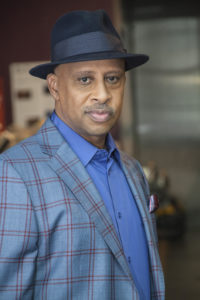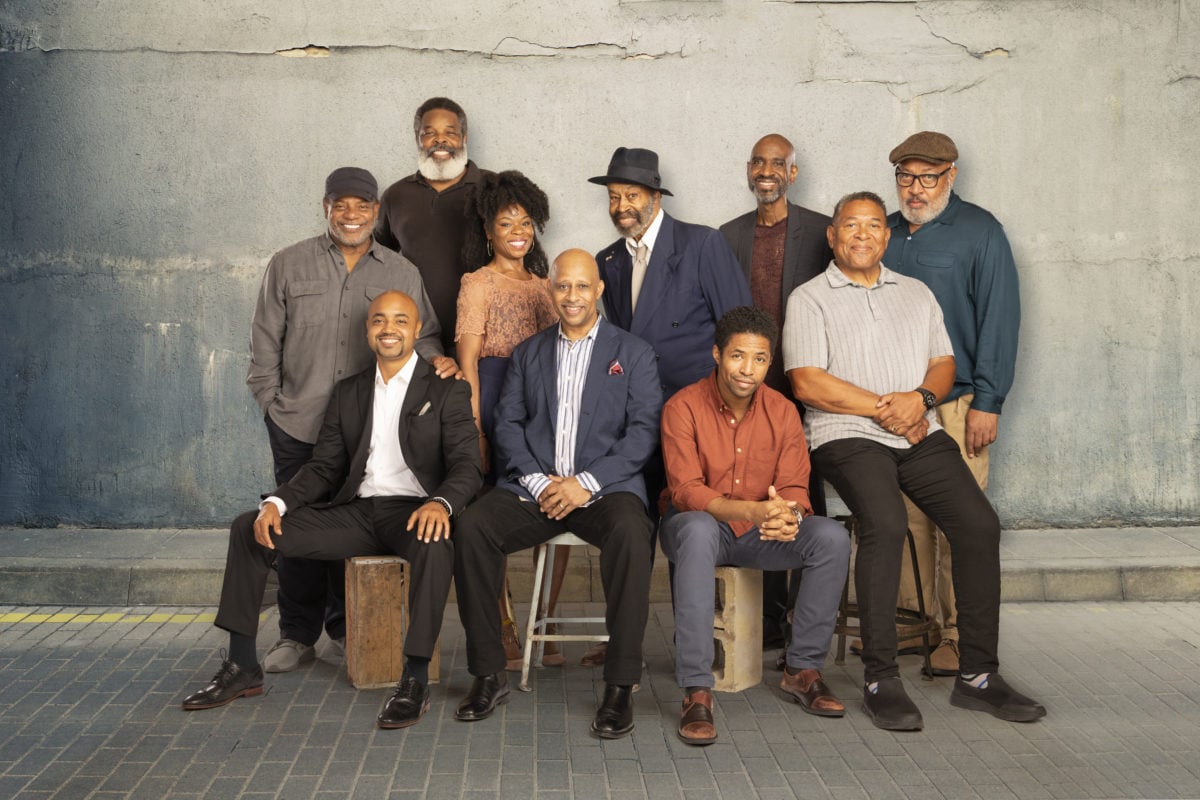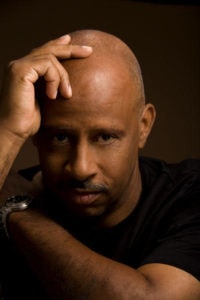Perhaps it is his distinctive voice or the fact that he has been called the “best storyteller of his generation” that makes Ruben Santiago-Hudson the apparent inheritor of the body of work produced by August Wilson, one of the most important playwrights of the twentieth century. Perhaps the graceful alignment of songs, both Santiago-Hudson’s and Wilson’s, restoring a recognizable narrative and tune to Black life, makes Santiago-Hudson the proper steward of Wilson’s plays: ten of them, set in the same neighborhood in Pittsburgh, one for each decade of the twentieth century, known collectively as the Pittsburgh Cycle.

No matter how the lives of these great men of the theater aligned, theater history remains richer, fuller, and more nuanced because of them. I recently caught up with the Obie and Tony award-winning actor, screenwriter, playwright, and director Ruben Santiago-Hudson to discuss not only his role in directing August Wilson’s play Jitney, which kicks off a national tour at Arena Stage on September 13, 2019, but also Wilson’s legacy as a playwright and cultural arbiter and their friendship and mutual respect for the craft.
Santiago-Hudson and Wilson’s relationship dates back to when Santiago-Hudson first saw a performance of Ma Rainey’s Black Bottom. With tears streaming down his cheeks, Santiago-Hudson realized that he was witnessing something on stage that he had never seen before: the full humanity of Black characters.
Santiago-Hudson determined that he would one day act in a Wilson play. Later he would audition for Two Trains Running, but Laurence Fishburne won the role instead. Theater history was made, however, when Santiago-Hudson auditioned for Seven Guitars in 1994 and landed the role of Canewell alongside notable actors Viola Davis and Keith David.
Santiago-Hudson recalls that in Wilson’s audition notes, he wrote about Santiago-Hudson: “he has the same song I have, same music.” Seven Guitars debuted on Broadway in 1996. Santiago-Hudson won a Tony for his performance.
The link between Santiago-Hudson’s playing Canewell in Seven Guitars and the play Jitney may not unveil itself as readily to anyone else as it does to the actor who landed the role 25 years ago. “This is not known by many folks,” Santiago-Hudson said, “but in order to bring the performance time of Seven Guitars to three hours, many of my lines were cut. I was upset.”

This caused a rift between Santiago-Hudson and Wilson. But Santiago-Hudson later learned that those lines went into Jitney. “August and I made up over some salmon cakes, grits, and biscuits,” he boomed.
Jitney at the Arena Stage will be a continuation of the 2017 Broadway production which won the 2017 Tony Award for Best Play Revival. Jitney examines the everyday lives of mostly working-class Black men in a gypsy cab station in the Hill District of Pittsburgh in 1977.
It was the only remaining show in Wilson’s Pittsburgh Cycle that had not been on Broadway and Santiago-Hudson vowed to Wilson before his death that it would one day make it to Broadway. Santiago-Hudson earned a Tony nomination for his direction of that production and his intimacy and respect for Wilson’s vision colors his interpretation of the play.
“The Africanness, the portrayal of [Black people] being fully human, caring, loving, with anger and pathos and poetry, and loving even if the love is brutal” remain crucial elements in any Wilson play, he said. Santiago-Hudson believes that it is his responsibility to get Wilson’s vision right. “My production differs from numerous productions. My production is from my sensibilities, but honoring August’s text and mission. The original music and dynamic production I [think] takes it up a couple of notches,” he said.

The symbiosis between the actor and playwright runs deep and became apparent to Santiago-Hudson in 2001 when he wrote and staged his one-man play Lackawanna Blues, about his coming of age in a rooming house in Lackawanna, New York. “August came to see me in Lackawanna Blues when I was at the Public Theater. He wanted to see how a one-man show was done. He saw Lackawanna Blues three more times. It had a template for how he wanted to do How I Learned What I Learned,” the autobiographical one-man play that Wilson wrote and performed in 2003.
The relationship between the two deepened when Wilson invited Santiago-Hudson to perform How I Learned What I Learned. “He called and said, I want you to perform How I Learned. This frightened me because I didn’t think I could be or impersonate him. Wilson said, ‘No, don’t be me, you tell my story’,” stated Santiago-Hudson.
Santiago-Hudson took a deep breath and confessed, “it took me eight years to come to grips with it. Through James Houghton at the Signature (founder of the Signature Theater in New York) and August’s prodding, I did it.” Santiago-Hudson opened Wilson’s autobiographical play at the Pershing Square Signature Center in 2013, eight years after Wilson’s passing.
During this time, Santiago-Hudson continued his mission to get Jitney to Broadway. Now having accomplished this task, he is part of that production’s national tour.
For Santiago-Hudson, Wilson’s plays engage with the authenticity of everyday Black life, which, before August Wilson, rarely graced a theater’s stage. Wilson’s plays symbolize “the glory of our people, the pain is what the glory reveals so magnificently,” Santiago-Hudson said. “Wilson believed that everything that is innate in humanity is in the African-American story.”
Jitney runs from September 13 to October 20, 2019, at Arena Stage, 1101 Sixth SW, Washington, DC. For tickets, call the box office at 202-488-3300, or go online.




